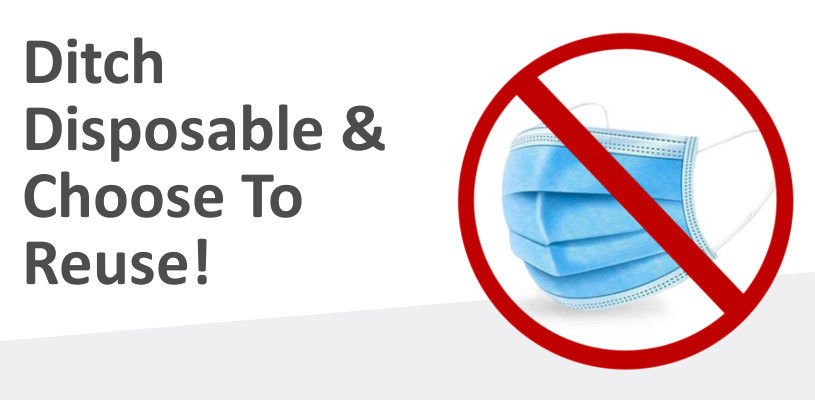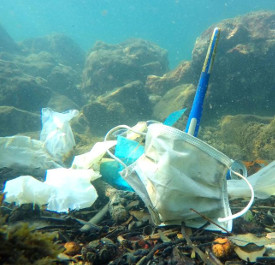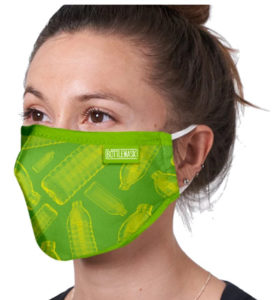
On the 24th of July a new rule was brought into the UK. It said that wearing Face Masks would now be mandatory in shops and supermarkets as well as on public transport. The UK isn’t the first country to do this with some states in Germany, Spain and now France, also having similar rules. It’s a move that is likely to have positive effects in the fight against Covid19, with Oxford University stating “Cloth face coverings, even homemade masks made of the correct material, are effective in reducing the spread of COVID-19 – for the wearer and those around them”. But, what are the effects of all these masks on the environment?
The Covid19 Pollution Problem
The new rules require there to be a lot more personal protection masks available. Some will be homemade material face coverings but unfortunately, for many people and businesses, convenient and cheap single-use masks are the easy option. In France alone, authorities have ordered 2 billion disposable masks. The problem with these single-use masks is they are often made using polypropylene, a fossil derived plastic which also sheds harmful microplastics. It’s estimated that this material can take 450 years to biodegrade. And where is it likely to end up?

Like single-use plastic bottles and coffee cups, this PPE waste is likely to end up in landfills and in the ocean. In fact, it’s already starting to happen. The French non-profit conservation charity Opération Mer Propre, said that divers are now finding covid waste including “dozens of gloves, masks and bottles of hand sanitiser beneath the waves of the Mediterranean, mixed in with the usual litter of disposable cups and aluminium cans.” When lockdown began, people spoke of the environmental benefits; with less planes in the sky, less land transportation being used and less junk food being consumed. However, it seems our global problems with ocean waste and plastic pollution will only get worse.
So, what can we do?
As stated in this great article by Vogue on the issue of disposable mask pollution, making or investing in reusable face masks and coverings will be key.
1. Buy reusable masks.
 It’s the easiest and most obvious way to stop the use of single-use, disposable face masks. They can be bought from most supermarkets and convenience stores or from individuals who are making them on sites like Etsy and Facebook Marketplace. If you’re lucky, you may work or be part of an organisation that has their own branded face masks which they will be gifting.
It’s the easiest and most obvious way to stop the use of single-use, disposable face masks. They can be bought from most supermarkets and convenience stores or from individuals who are making them on sites like Etsy and Facebook Marketplace. If you’re lucky, you may work or be part of an organisation that has their own branded face masks which they will be gifting.
2. Even better, make your own face coverings.
As I said, many individuals are making face coverings and now selling them online. But it’s just as easy to find a cutting template online to make your own masks and face coverings. You could buy some funky patterned material and make a fashion statement or even better, make a face covering using waste material and old clothes found at home. On that note…
 3. Use masks made from recycled materials.
3. Use masks made from recycled materials.
Whether it be face coverings made from old clothes and bedding or like our BottleMasks, made from recycled PET bottles, using a mask that is made directly from recycled materials means not only are you not contributing to the global waste issue, you are helping to fight against it.
——————-
For those of you looking to purchase reusable masks with your own branding, company logo or design, please visit our page of custom branded PPE to see models available and get a quote.
Stay covered and stay safe.
Share This Page
Narelle McGregor
Marketing Manager at Brandelity. Passionate lead generator, content creator and digital marketer with more than 12 years experience. Works hard daily to promote sustainable branded merchandise and highlight the impact of eco-friendly promotional products.


